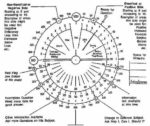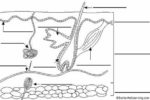The Human Stomach and Digestive System
The human digestive system is a complex network of organs and glands that processes food. It is responsible for breaking down food into nutrients, which the body uses for energy, growth, and cell repair.
tomach Anatomy and Function
The stomach is a muscular organ located on the left side of the upper abdomen. It is a key component of the gastrointestinal (GI) tract, which includes the mouth, esophagus, stomach, small intestine, and large intestine.
The stomach is involved in the gastric phase of digestion, following chewing. It performs a chemical breakdown of food by means of enzymes and hydrochloric acid. When the stomach receives food, it contracts and produces acids and enzymes that break down the food. Once the food is broken down, it is passed to the small intestine.
Digestive Process
The digestive process involves several steps:
1. Mouth: Food is chewed and swallowed, and the tongue pushes it into the throat.
2. Esophagus: Food travels down a hollow tube called the esophagus. At the bottom, the esophageal sphincter relaxes to let food pass to the stomach.
3. Stomach: The stomach creates digestive juices and breaks down food. It holds food until it is ready to empty into the small intestine.
4. Small Intestine: Food mixes with the digestive juices from the intestine, liver, and pancreas. The intestinal walls absorb nutrients and water from food and send waste products to the large intestine.
5. Large Intestine: The large intestine turns waste products into stool and pushes the stool into the rectum.
6. Rectum: The rectum is the lower portion of the large intestine. It stores stool until a bowel movement occurs.
Importance of Digestion
Digestion is crucial because the body needs nutrients from food and drink to function properly and stay healthy. Proteins, fats, carbohydrates, vitamins, minerals, and water are all essential nutrients. The digestive system breaks these nutrients into parts small enough for the body to absorb and use for energy, growth, and cell repair.
In conclusion, the stomach plays a vital role in the human digestive system. It not only breaks down food into a form that can be absorbed by the body but also acts as a temporary storage site for food. Understanding the function and importance of the stomach and the digestive system as a whole is key to maintaining good health..



